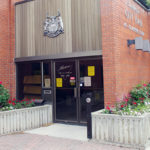Home »

You’ll not be sorry if you give Burke a try
Book Review
By Derryll White
Burke, James Lee (1978). The Lost Get-Back Boogie.
You know, the blues is something that’s hard to get acquainted with. It’s just like death…. The Blues dwells with you every day and everywhere. – Sam “Lightning” Hopkins.
 One writer called James Lee Burke “the Graham Greene of the Bayou,” and he is right. Burke is a treat to read, with bold characters, strong and believable communities and a poet’s link to all that is beautiful in the natural world. So, he is a lyrical writer attuned to violence and the electric life of the streets.
One writer called James Lee Burke “the Graham Greene of the Bayou,” and he is right. Burke is a treat to read, with bold characters, strong and believable communities and a poet’s link to all that is beautiful in the natural world. So, he is a lyrical writer attuned to violence and the electric life of the streets.
I read Robert Creeley, Walt Whitman, Rumi, Ed Dorn, Leonard Cohen, Fred Wah – I read a lot of poetry and love it, but nobody is as lyrical as Burke when he lets it roll. He creates a hard edge of booze, drugs and violence and then melts it into memories of dawn, mountains, meadows and freedom. Nobody does it better!
The thing is, James Lee Burke pay attention to what he sees, keeps it in the foreground of the scene he is building. Most of us see it as cluttered background to the wars dissecting our brains. James Lee Burke is brilliant in his singularity.
Burke runs a serious line through the whole story, looking at what insanity is. He holds up the Korean War as an instance of the permissible release some got to let out the inner spooks. He also lays bare the fears driving men into bars, into fights, into jail. The blues is all about sadness, about the frustrations we find in trying to live our dreams.
The blues are the fears that drive us to embrace the blackness of doing nothing instead of digging ourselves out of the deep holes we create. ‘The Lost Get-Back Boogie’ tore up my heart, took me through the past of my own life and left me wanting the stillness that Iry Paret finally earned. Burke is a wonderful, strong writer who always moves me to write my own blues. You will not be sorry if you give him a try.
********
Excerpts from the novel:
PRISON – “You just getting out?” the man said. He said it in the flat, casual tone that most free people use toward convicts, that same quality of voice behind the Xeroxed letters from Boston asking for the donation of our eyes.
BAYOU COUNTRY – The expanded swell of the trunks at the waterline was dark from the wake of passing boats, and white egrets were nesting in the sand, their delicate wings quivering as they enlarged the depression around them. I had fished for bream, sacalait, and mud cat under every cypress on that bank, because they always came into the shade to feed in the hottest part of a summer afternoon, and there was one tree that had rusted mooring chains nailed into the trunk with iron stakes that the bark had overgrown in stages until the chain looped in and out of the tree like a deformity.
LOUISIANA TO MONTANA – The cotton and cornfields were behind me now, and also the patent medicine and MARTHA WHITE’S SERLF-RISING FLOUR signs, the vegetables and watermelons sold off the backs of trucks along the roadsides, the revival tents set back in empty pastures, the South itself. It simply slipped past me over some invisible boundary that had nothing to do with geographical designation, and then it was Dalhart and Texline, where the grain silos stood gray against the hot sky and clouds of dust, and finally Raton, New Mexico.
MISSOULA – Missoula was a wonderful town. The mountains rose into the sky in every direction, the Clark Fork River cut right through the business district and college kids in inner-tubes and on rubber rafts floated down the strips of white water with cans of beer in their hands, shouting and waving at the fishermen on the banks. The town was covered with elm and maple trees, the lawns were green and dug with flower beds, and men in shirtsleeves sprinkled the grass with garden hoses like a piece of memory out of the 1940s.
COUNTRY MUSIC – But what he didn’t understand, and what most northerners don’t, is that rural southern music is an attitude, a withdrawal into myths and an early agrarian dream about the promise of the new republic. And regardless of its vague quality, its false sense of romance, its restructuring of the reality of our history, it is nevertheless as true to a young boy in southern Louisiana listening to the Grand Ole Opry or the Louisiana Hayride on Saturday night as his grandfather’s story, which the grandfather has heard from his father, about the Federals burning the courthouse in New Iberia and pulling the bonnets off white women and carrying them on their bayonets. It was true because the boy had been told it was, and he would have no more questioned the veracity of the story than he would have the fact of his birth.
MONTANA – “They’re afraid.”
“Of what, for God’s sake?”
“The people who control their livelihood. All the eastern money that gives them a job and tells them at the same time that they’re working for themselves and some pioneer independent spirit. They tried to organize unions here during the depression, and they got locked out until they begged to work. So they think that any change is trouble, and they’ve told themselves that for so long now that they’ve come to believe it.”
 – Derryll White once wrote books but now chooses to read and write about them. When not reading he writes history for the web at www.basininstitute.org.
– Derryll White once wrote books but now chooses to read and write about them. When not reading he writes history for the web at www.basininstitute.org.







